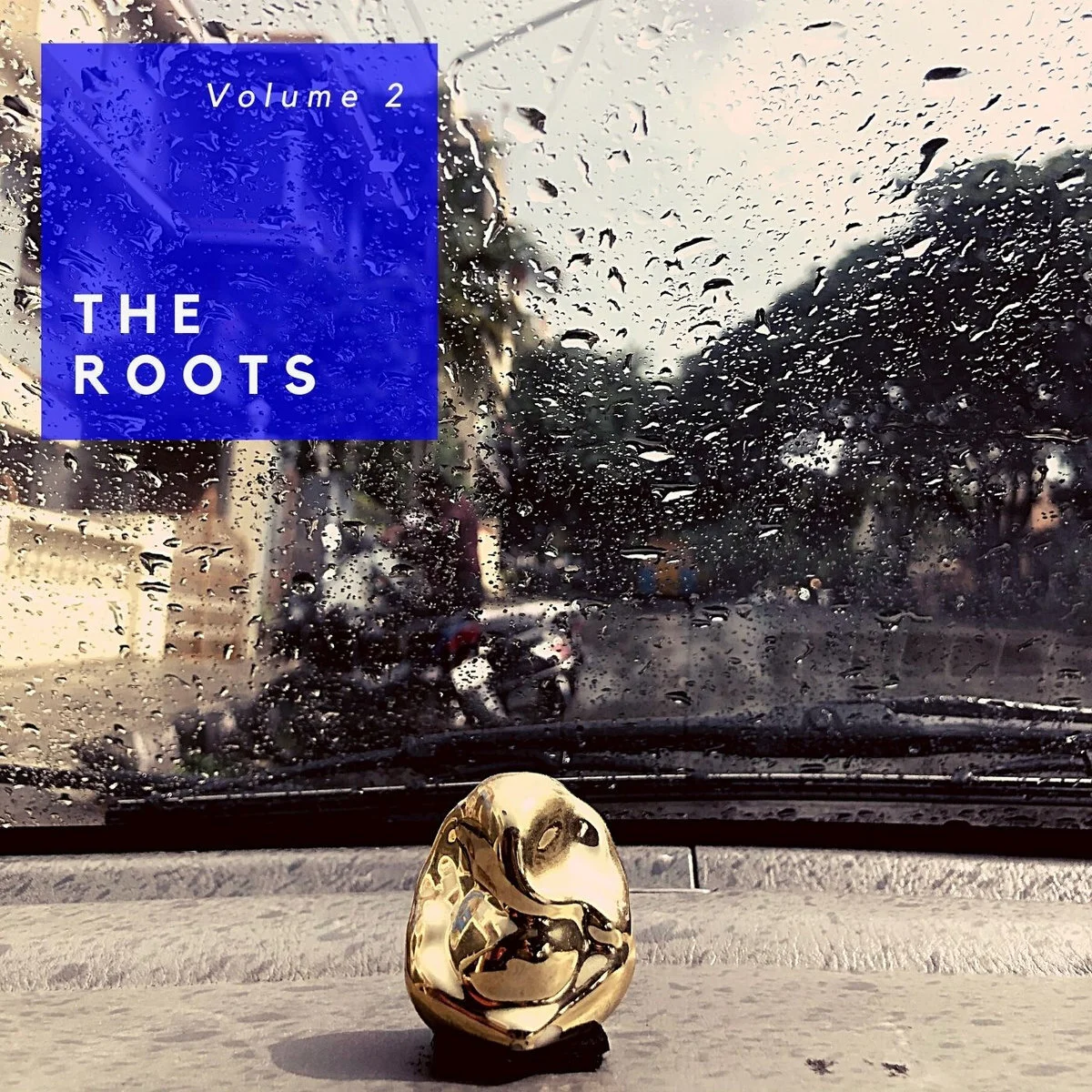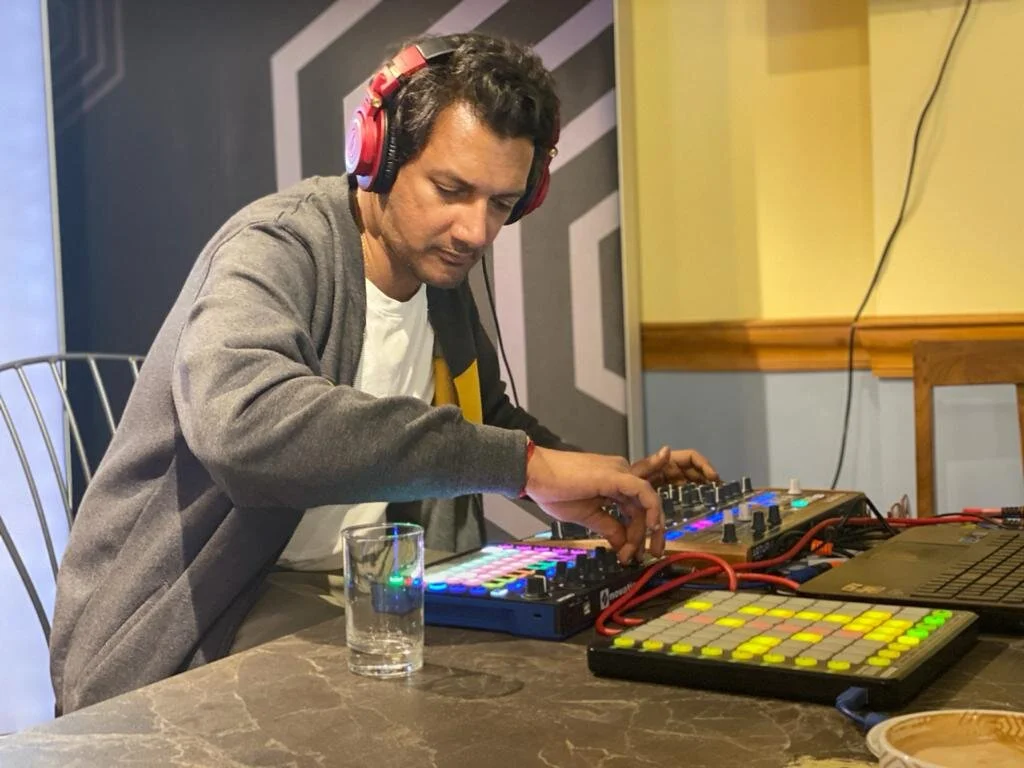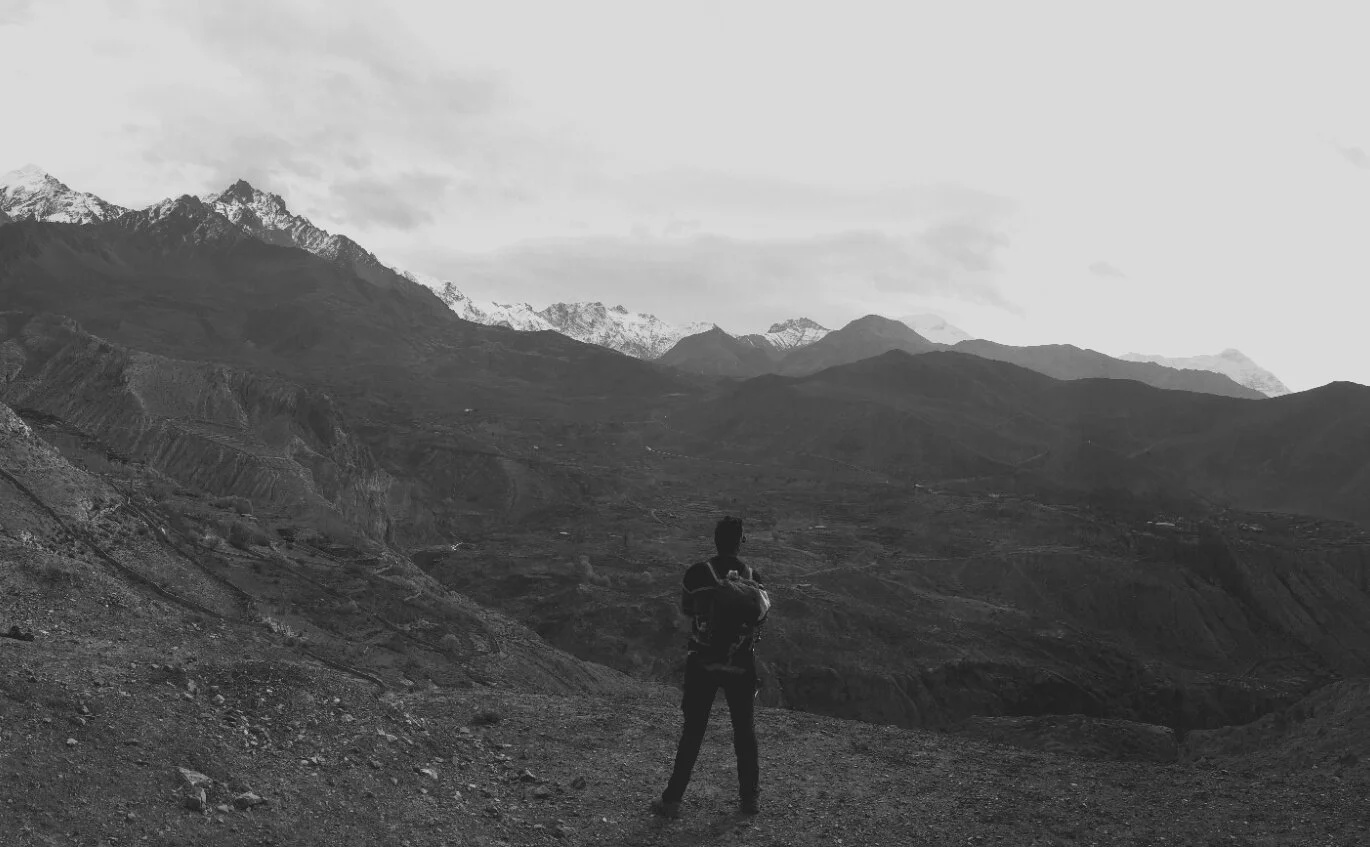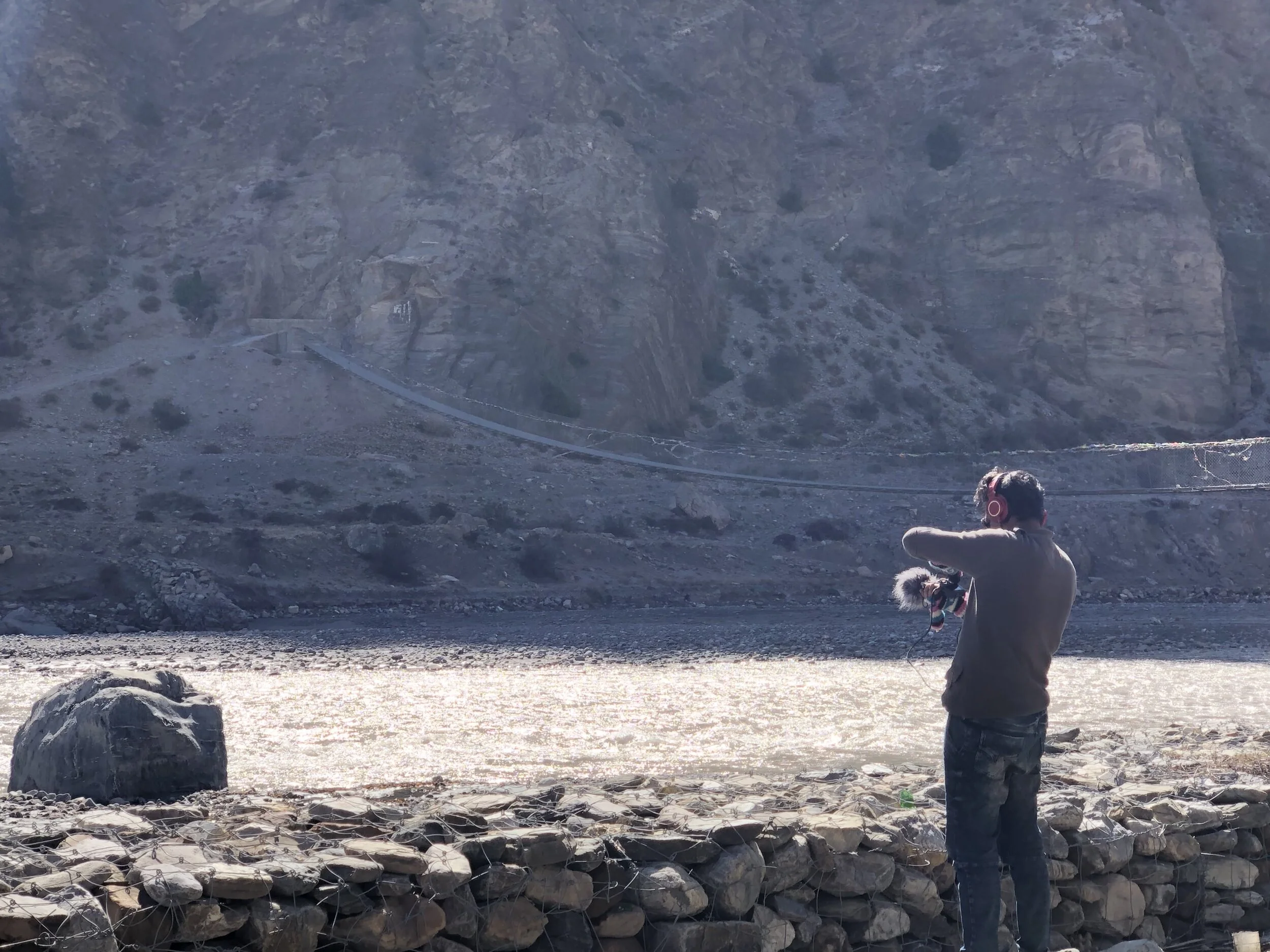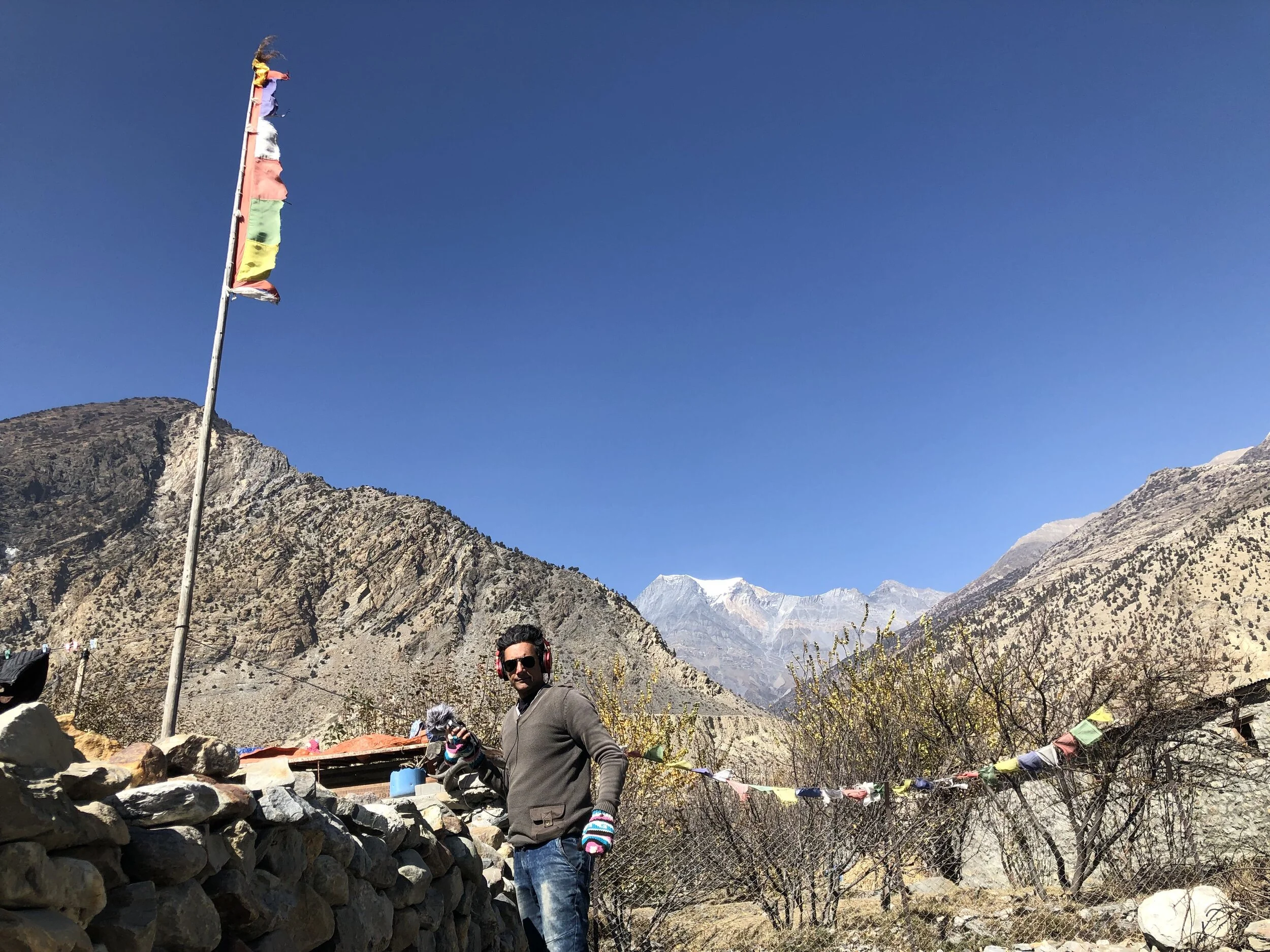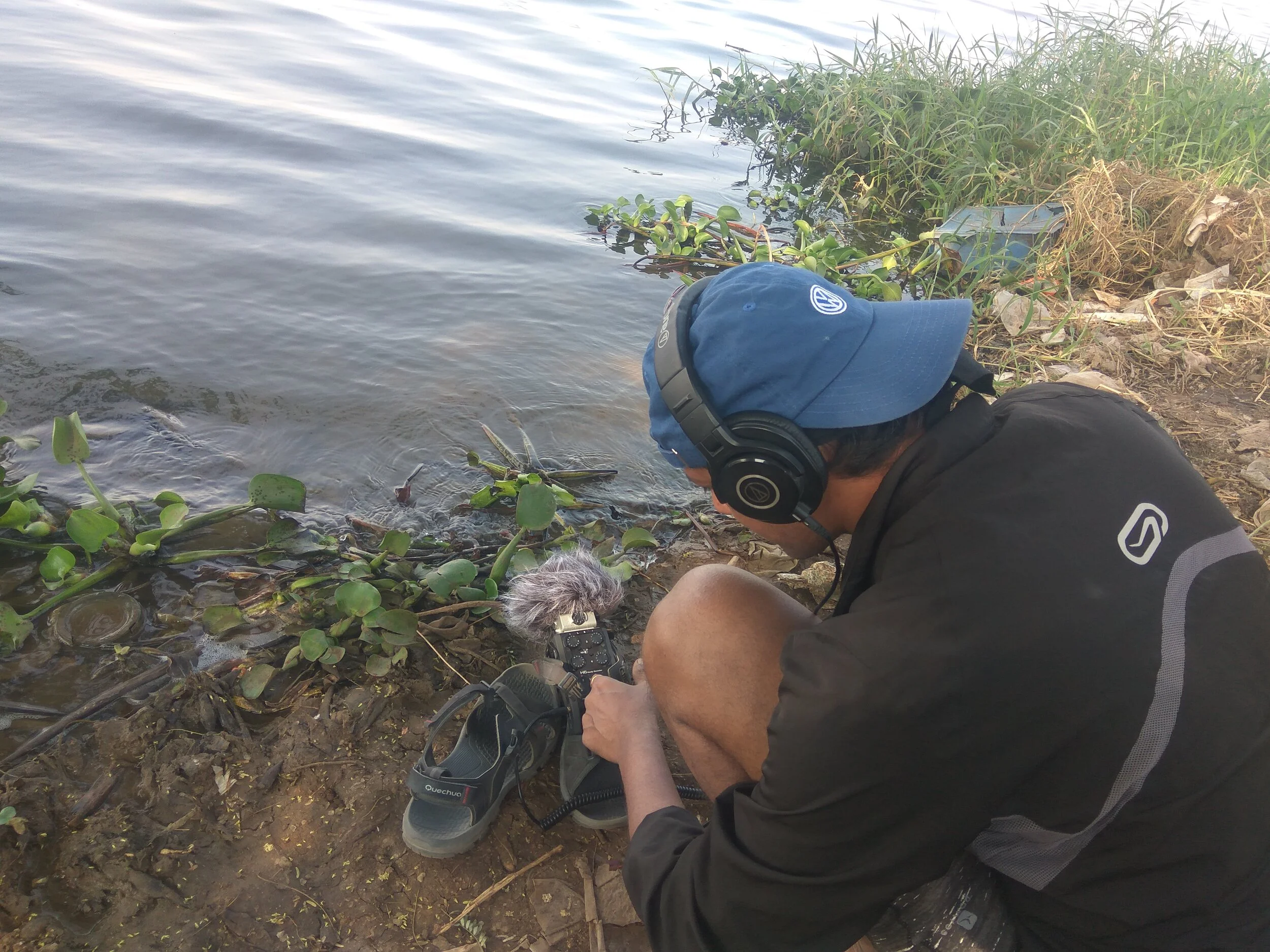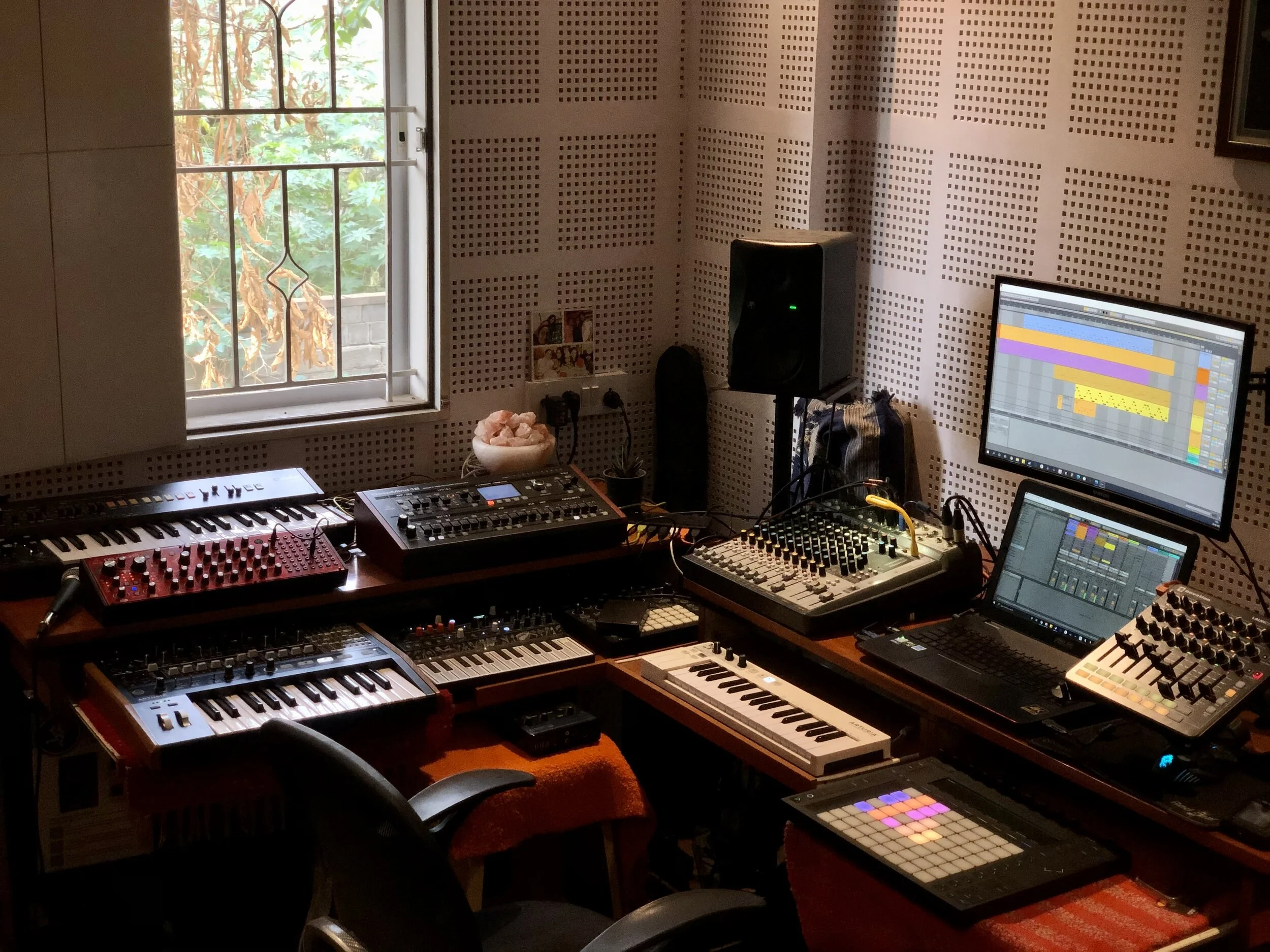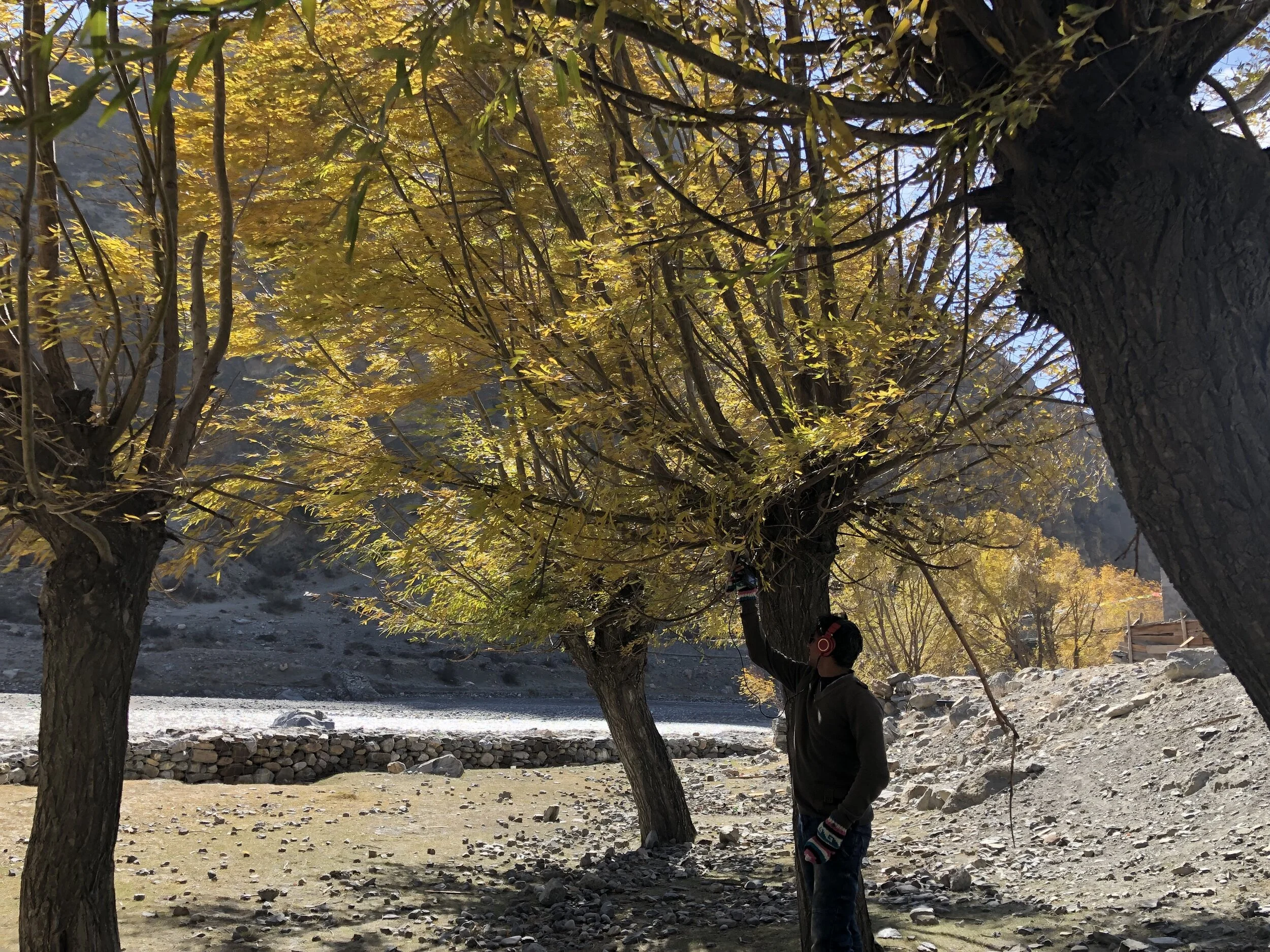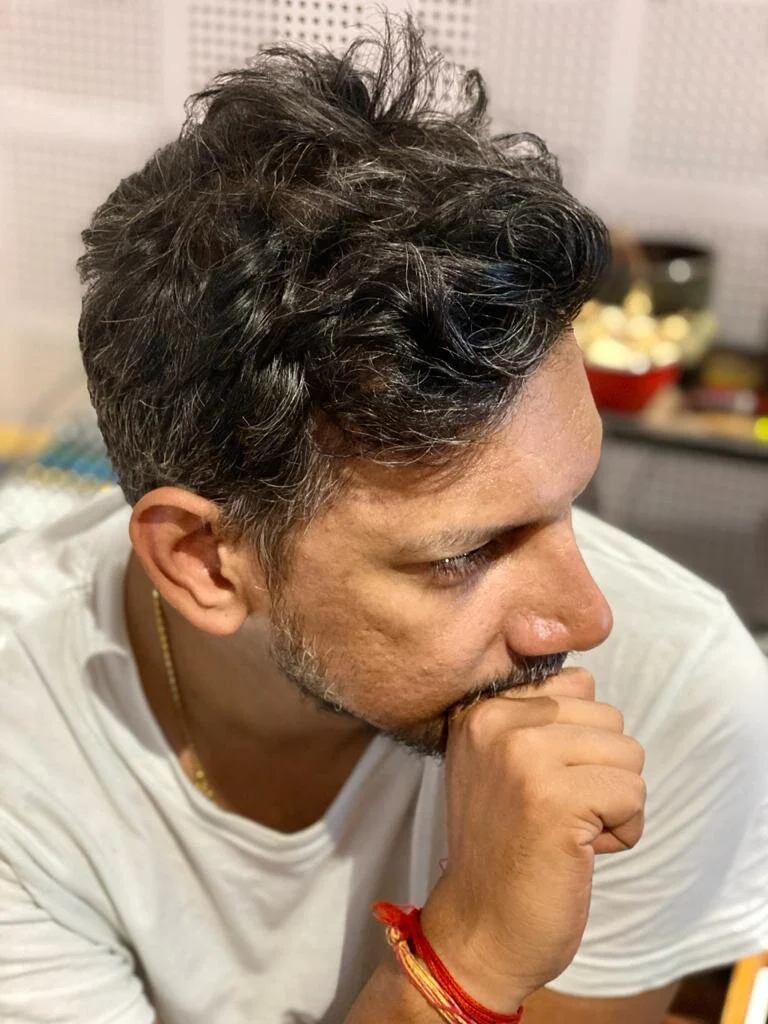Syntheshwara
by Mister Mime
10th June 2021
'Syntheshwara' signifies the intelligence that resides in all electronic music equipment. In 'Roots Vol. 2', the Bangalore based artist and beatmaker invokes this 'deity of sound and synthesis' which he created for his own home studio: "the Temple of Sound", and explores an interesting sonic space by sampling mesmerizing Indian melodies over laid-back beats. His 'workflow' truly lives up the to 'flow' part of the word, as the entire album was done in 24 hours, in one take, with no re-edits or re-arrangements. The ‘Roots’ series is equivalent to a refreshing dip in a lake, or a peaceful trek in the mountains.
MM: How did you come up with your artist name “Syntheshwara”?
Syntheshwara: My wife and I built a studio from scratch in late 2019 in my home and this studio, the 'Temple Of Sound' had to have a deity. That is when I created the deity 'Syntheshwara'. It is the supreme being and ultimate nature of sound and synthesis. Syntheshwara resides in all the cables, analog synths, midi controllers, walls, software, and every piece of equipment in the studio. It is the intelligence of the studio. Syntheshwara is a state to be in while making tracks and anything creative in the studio. I am still practising to stay in that state for longer times :)
MM: How did the idea for the album “Roots Vol.2 “ come about?
Syntheshwara: 'Roots' is a collection of head-nodding beats, crunchy sample chops, and basslines. The concept is very simple: Program drums, add sample chops, play bass on them, arrange the beat live, and DO NOT re-edit the arrangements. All the beats are 'ONE take’ performed live and recorded directly into Ableton Live for mixing and mastering (most time-consuming). The idea is to embrace the mistakes and enjoy them. Basically, this is how I started making music 15+ years ago, hence the name ‘Roots’. I have beats worth 10 volumes and even more. I will be releasing them as and when I can. Roots Vol.2 beats were freshly composed in 24 hours in one take.
MM: How challenging & rewarding was it for you technically, to conceive this mix between the swung beats and Indian vocal melodies?
Syntheshwara: Well, the challenge was what kind of vocal samples to select. But once I started making beats the samples automatically started to fit together with the beats especially the Hindustani ones (Brahman & Atman and Broken Raaga). I sampled them from youtube directly into Koala Sampler via cellphone. When things effortlessly start falling in place, you realize you are 'Syntheshwara'. It is such a rewarding experience and I make sure I hit that high point whenever I am in the studio. If I am not enjoying and feeling what I am hearing I press stop, go do something else, and come back after some time.
MM: Can you tell us how the track names correspond with their respective musical ideas?
Syntheshwara: The names were chosen based on how we felt while listening to the beats. My wife wanted to give a write-up in the Bandcamp description as to what each name really means but I held back from doing that. I want listeners to listen to the music and if they really find the names interesting and curious they will do their own research and fit their own meanings. I myself do this when I listen to music from other countries. This gives room for more imagination. For example, Brahman & Atman, to me the entire sound spectrum of the beat is Brahman and every element in that spectrum as a whole constitutes the Atma. You can listen to the beat and the vocal sample as two separate entities but actually, they are one unit making the spectrum complete. These are all abstract and open-ended ideas that are better to be kept that way instead of trying to give concrete meanings.
MM: Are there any stories that you’d like to share regarding the making of the album or any of the individual tracks?
Syntheshwara: We decided to make The Roots compilation while we were trekking in Nepal. Since we had built this studio, we had to put out something but it should also mean something to us. We decided to map out our musical journey in the form of these compilations like 'The Roots' which is very sample-based, chilled hip hop beats, to begin with, and branch out to different genres of music we like.
MM: Can you tell us a bit about your musical background and journey?
Syntheshwara: I was fortunate to listen to a lot of music during my childhood...very typical. Both of my parents are musicians.. also typical. Things changed when my dad bought home a Casio keyboard and tried to teach me how to play it. I was not at all interested in playing anything he was trying to teach me but I was very much into the SFX section of the keyboard. Those sound effects had invoked an interest within me about synthesizers in general. I had early access to computers and the internet which gave me access to software-based programs like hammerhead, modplug tracker, etc. Hip Hop music of the 90s and early 2000s (DJ Premier, Pete Rock, Madlib etc.) made a huge impact on me as a kid. I never understood a single word of what they were rapping but the beats stuck to my ear. From Hip Hop beats I transitioned to Trip Hop, Ambient, and very mellow music... sometimes even minimal and melodic techno. I used to listen to glitchy breakcore stuff like Venetian snares and dark ambient/industrial music like Lustmord from time to time.
Syntheshwara: Last year I have contributed ambient tracks to the Social Isolation label under the name Swaroopa. Staying at home due to the virus outbreak has given me the opportunity to work on my skills even more. The trial and error methods that I have developed over several years are turning into proper processes. I am doing everything by myself: compose, mix master and do the album artwork. It's still all experimental since I am not academically trained to do any of these tasks but I like to keep it this way since I am a very good self-learner. I am exploring sound with 'affordable' semi-modular synths like Behringer Neutron and Arturia Minibrute and software modular systems like VCV Rack and Reaktor. I am all alone in this journey and for the last 4 years, my wife has tagged along as a production partner who is also the only real feedback system I have.
MM: Who were your musical influences for this album?
Syntheshwara: My biggest influence is all the music that I have heard by Carbon Based Lifeforms over the years. Even though the genre is different CBL has a lasting impact on me and my music. There are many other Psybient artists like Entheogenic, Ott, etc. The lo-fi chill beats on youtube are a huge influence and also the equipment lying around me. My influences are way too cluttered and spread across a diverse spectrum of sound.
MM: What are the things that inspire you artistically? (Other art forms; artists/people from other disciplines)
Syntheshwara: I am greatly inspired by old ancient Hindu and South American temple complexes, structures, and idols and the thought process behind those creations. I love how the Indian concepts and culture were 'sampled off' by people in different geographies and internalized into their civilizations. Just like how we sample from different records to put a beat together. The concept of sampling has made me realize that all genre of music is actually the same thing but heard in different iterations and all living beings are one and the same experiencing different iterations of sound in their own ability.
MM: Could you share any signature tools, techniques, workflows, that you believe are unique/essential to your sound?
Syntheshwara: My workflow is simple when it comes to beat-making. Drums, bass, sample chop, and FX on the master. I am bad at doing linear left-to-right arrangements and that's why I love Ableton. I can perform my arrangement live into the arrangement view without thinking about bars and move on. I do not understand hook bridge intro and all and do not like counting bars. If it naturally comes while I am performing an arrangement it's fine but I do not intentionally try to perform that way. It's always a feeling. It took years for me to accept this because I was trying the linear method which was not working and stopped me from finishing anything. I had to switch from FL Studio to Ableton Live just for the session view and clip launching concept. I use this process on every piece of equipment I have and it works very well. In Koala Sampler, you can export your beats as an Ableton project. Like everybody else, I use sample rate degradation plugins like D16 Decimort, Reaktor VHS, and Ableton stock plugins to emulate that lo-fi sound. It all depends on the beat. I use Maschine Mikro and I have a ton of beats sitting there waiting for me to push it out to Bandcamp.
Syntheshwara: I recently got this free max for live plugin call Maze which is a looping device based on a time-lag accumulator system. I pull out a VST or a hardware synth, set the tape recording length in seconds on Maze, and started playing melodies. You can playback the melodies in halftime, normal and double speed also in reverse. I keep stacking melodies on top of each other until I create a thick composition. I save it as a .wav or .aiff file and then bring it into my samplers for chopping up. This way I am sampling myself instead of other records. I am already about to finish an EP based on this newfound workflow. The EP will also contain the original melodic stacks used to make the tracks so that listeners can put their own spin on them. The possibilities are limitless. I recently acquired Akai MPC One and learning its workflow. I have one album named 'Old Monk's Circle' where I have used pocket operator 33 KO and cassette tapes exclusively and the beat-making workflow is the same. My biggest hurdle is mixing and mastering. I spend too much time on that and lose interest. I am working my way through that by learning how to keep it simple and effective. I am using Ozone for that.
MM: What do you like to do apart from making music?
Syntheshwara: I play a lot of video games, especially city-building and survival games. I can sit on them for hours and hours straight. My music has a lot of influence from video game music as well. I work in a Cybersecurity operations team which is my day job. So I am automatically a technology nerd. Other than this, it's basically always sound.
Follow Syntheshwara on:
https://syntheshwara.bandcamp.com/
https://www.facebook.com/syntheshwara
https://twitter.com/syntheshwara?lang=en
All Images courtesy of Syntheshwara
